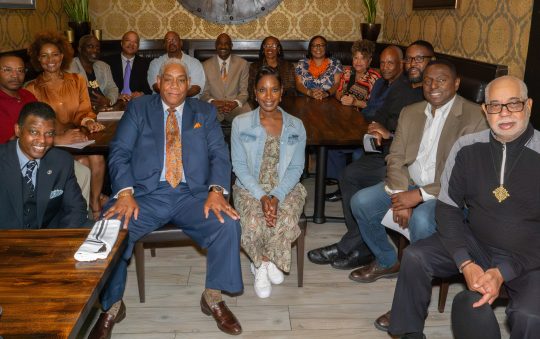
According to the Public Policy Institute of California (ppic.org), Black motorists are 20 percent more likely to be stopped by law enforcement as White motorists.
Conflict Management and Dispute Resolution expert Lenay Richardson sat down with the Los Angeles Sentinel to share practical tools and strategies to diffuse negative situations with law enforcement.
L.A. Sentinel: You have a saying: “In order to prevent conflict, you need to know how to deal with conflict.”
Lenay Richardson: Conflict is based in fear of the unknown. So if you can manage your fear and get to a position of calmness and rational thinking, then that is 90 percent of conflict management. Remember, police officers just want to do their job and return home to their families.
LAS: So using empathy with the police means trying to see things from their perspective, and that may de-escalate a potential conflict or unnecessary aggression.
LR: Right! The officer is a person, too. But with a trained mindset. Because you have rights, he has to see your mindset as well. It’s very difficult to present rational behavior when you’re scared and not in control. Center yourself first before you begin speaking to a police officer.
LAS: Have you ever been pulled over? How did you handle it?
LR: Of course I’ve been pulled over! But not recently. When I was younger though, it was, “Officer, you’re doing a great job! Do you know how long I was speeding [back there]? You caught me!” That was my approach. I complimented his work and the officer let me go with a warning.
LAS: How about some tips and strategies to help us diffuse negative situations like racial profiling and stereotyping?
LR: The main strategy is to center yourself. You want to be calm when an officer approaches you, so you in turn want to be approachable. [Next], you want to submit yourself [to authority]. Watch your tone of voice and follow their instructions. Be quiet. Simply let the officer speak. Comply with his protocol. The less you say, the better. In doing so, you’ll diffuse a lot of that negativity in his mind. Like I tell my son, “It’s better to be a live chicken than a dead duck.”
LAS: How can the South Los Angeles community connect with you?
LR: I recently graduated from Pepperdine University with a dual degree in Dispute Resolution and Legal Studies, and I volunteer with Centinela Youth Services in Inglewood. This fall, I start law school. Catch me while you can at lenay42@live.com.







